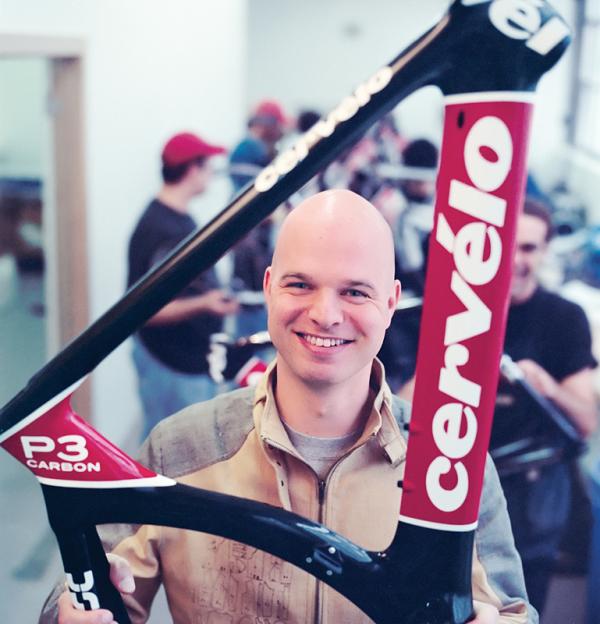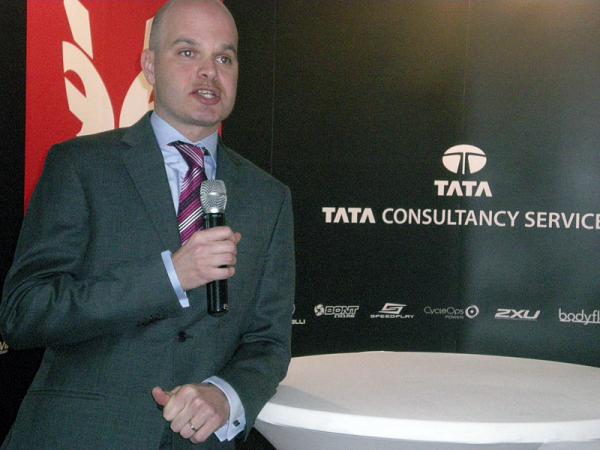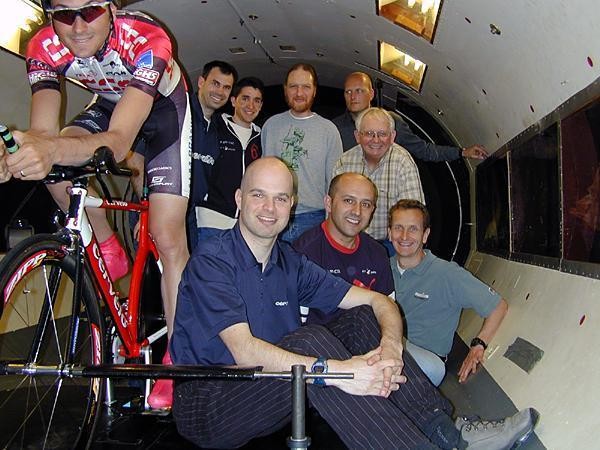Vroomen on doping, the media, Basso, and Schleck
Criticises nationalist tendencies in cycling



Gerard Vroomen has never shied away from the discussion on doping and in two recent blog posts on his personal website he raised issues over the media’s reporting of the issue. After a recent restructure at Cervelo, in which he stepped down from his position as CEO, the former manager of the Cervelo TestTeam was quick to point that the views posted on his blog were his alone but talked openly about his feelings on Ivan Basso, Fränk Shleck and the journalistic endeavour into doping.
“I’ve always spoken my mind on doping. I’ve said that the teams are part of the problem but so are the riders, the sponsors and the media. It’s hard to break out of that whole vicious circle,” Vroomen told Cyclingnews.
In his blog, Vroomen criticised the balanced reporting from the global media, saying that there was a lack of critical attitude in cycling (and sports) journalism in general.
“There is reporting, and there’s nothing wrong with that, and then there’s digging and some people choose not to do that. Some people’s jobs are just to report the riding and some people have to look further. My beef, and it seems that the wrong people have been offended, is that if you’re there to report and not to dig deep then you should at least refrain from the over the top reporting on the athletes. Especially in the US where there’s been an uncritical attitude and where reporting has gone over the top into making someone out to be the second coming of Christ, and when you can sense that not everything is right. There needs to be some balance and I don't think that’s the case.”
Vroomen added that the issue isn’t one that only exists on one side of the Atlantic, with nationalistic tendencies and motives at play.
“In Italy Ivan Basso can do no wrong, in Spain Alberto Contador can do no wrong. Sport is probably the most nationalist thing we’ve still got in the world. People in the US are extremely anti doping with anyone that’s caught when they’re Italian, Spanish or German, but at the same time they don’t want to know about Levi Leipheimer’s positive test from the 90s. It’s a strange attitude and of course the media is much focussed on giving people what they want so they also don’t focus on that.”
In 2006, during Cervelo’s first major alignment with a team - CSC – Ivan Basso won the Giro. It was an emphatic victory in which the Italian put over 9 minutes into his closest rival and at the time Vroomen told the media “this is a major milestone for everybody in the company, and it feels great to be able to share this success with everybody at Cervélo and at Team CSC."
Get The Leadout Newsletter
The latest race content, interviews, features, reviews and expert buying guides, direct to your inbox!
However Basso was later embroiled in the Puerto doping scandal. He was banned for two years for ‘attempted doping’ but claims to this day that he won the 2006 Giro without the help of doping products. He has made a successful return to the sport; winning last year’s Giro and will head to this year’s Tour de France as a contender for yellow.
Vroomen told Cyclingnews that the 2006 Giro d’Italia was one of the hardest points of his time in the sport.
“The Giro in 2006 was one of the worst experiences of my life in cycling. I’d derive no pleasure from officially winning that race. I think that they should have taken that win away from him and I have no idea why they haven’t. You won't find me speaking about that race in any pleasant manner. For me that race doesn’t exist.”
“As soon as Basso was linked to Puerto and we saw the stuff they unearthed there I don’t know how you can say that race was clean. These guys didn’t just work with Fuentes for a couple of years and then stop for three weeks so they could ride the Giro.”
When asked if he and Cervelo were able to profit on the back of possible doping related successes, Vroomen explained that markets and return rates from wins are never that cut and dry.
“As to benefits from races, I think that’s genuinely overestimated. The best data I have was in 2008 when we won the Tour with Carlos Sastre. Our worst performing model was the model he rode to win the Tour de France. We saw zero boosts from his win. Overall the brand recognition grows and there’s no doubt to that but the individual wins do very little.”
Basso left CSC with Vroomen and CSC continuing their collaboration until the end of 2008. However one particular episode scarred Vroomen’s relationship with the sport after Fränk Schleck was linked to the Puerto story. He was found to have wired several thousand Euros to Fuentes but a press release issued by the team stated that the funds were for "training advice by experts who presumably worked with some of the biggest names in the sport," and that he "never used or attempted use of a prohibited substance or a prohibited method."
Vroomen used this example to illustrate the problems within sport’s governance and culture. “That’s an example that goes directly to the problems within sport, not just cycling. You can’t have somebody as a suspect of doping and then have the national federation make a judgement on it. It just doesn’t work.”
"The current situation of national federations handling doping cases also does the riders no favors. Whether guilty or innocent, the public doesn't get the sense that they are going through a fair process, so the rider gets damaged regardless."
“What happened with the Spanish federation and Contador was 100 per cent predictable and it’s the same in the Schleck case. It was no surprise that the Luxembourg federation decided not to do anything. I thought the real turning point with our entire pro cycling sponsorship was the press release sent out when the Schleck thing broke. That for me was really the end of it. That was so bad and it assumed cycling fans were so stupid that I just didn’t get that at all. That for me was the end.”
Daniel Benson was the Editor in Chief at Cyclingnews.com between 2008 and 2022. Based in the UK, he joined the Cyclingnews team in 2008 as the site's first UK-based Managing Editor. In that time, he reported on over a dozen editions of the Tour de France, several World Championships, the Tour Down Under, Spring Classics, and the London 2012 Olympic Games. With the help of the excellent editorial team, he ran the coverage on Cyclingnews and has interviewed leading figures in the sport including UCI Presidents and Tour de France winners.
